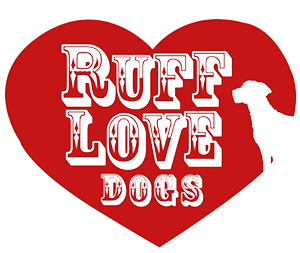What foods are safe for dogs and which foods to avoid
Written by Dog Enthusiasts
Updated April 4, 2024
As dog owners, we often find ourselves facing those big, begging eyes, pleading for a bite of whatever delicious treat we're enjoying. It's tempting to share our food with our furry companions, but not all human foods are safe for dogs. In fact, some can be downright dangerous. Understanding what your doggy can and cannot eat is crucial for their health and well-being.
What Dogs CAN Eat:
Lean Meats: Dogs are natural carnivores, so lean meats like chicken, turkey, and beef are excellent sources of protein for them. Just make sure they're cooked thoroughly and free from any seasonings or spices.
Fruits: Certain fruits can be a tasty and nutritious treat for your pup. Apples (without seeds), bananas, blueberries, and watermelon (without seeds or rind) are safe options. These fruits provide essential vitamins and minerals for your pup.
Vegetables: Many vegetables are safe for dogs and can provide added nutrients to their diet. Carrots, green beans, and peas are popular choices. Just be cautious with onions, garlic, and mushrooms, as these can be toxic to dogs.
Grains: While dogs don't necessarily need grains in their diet, small amounts of cooked rice, oatmeal, or quinoa can be added for variety. These grains can also provide a source of carbohydrates and fiber.
Dairy: Some dogs can tolerate dairy products like plain yogurt or cheese in small amounts. However, many dogs are lactose intolerant, so it's essential to monitor your dog's reaction and consult with your veterinarian.
What Dogs CANNOT Eat:
Chocolate: Perhaps one of the most well-known toxic foods for dogs, chocolate contains theobromine, which can be lethal to dogs, especially in higher concentrations. Even small amounts can cause vomiting, diarrhea, and seizures.
Grapes and Raisins: Grapes and raisins can cause kidney failure in dogs, so it's best to avoid them entirely. Even a small amount can be toxic and lead to serious health issues.
Xylitol: This artificial sweetener is commonly found in sugar-free gum, candies, and some peanut butter brands. Xylitol can cause a sudden release of insulin in dogs, leading to hypoglycemia (low blood sugar) and liver failure.
Onions and Garlic: These vegetables, whether raw, cooked, or powdered, contain compounds that can damage your dog's red blood cells, leading to anemia. Avoid feeding any foods containing onion or garlic to your doggy.
Alcohol: Just like in humans, alcohol is toxic to dogs and can cause vomiting, diarrhea, coordination problems, breathing difficulties, coma, and even death. Keep all alcoholic beverages out of reach of your dog.
When in doubt, it's always best to consult with your veterinarian before introducing new foods into your dog's diet. Every dog is different, and what may be safe for one dog could be harmful to another. Additionally, be mindful of portion sizes and avoid feeding your dog table scraps excessively, as it can lead to obesity and other health issues.
Remember, your dog relies on you to make the best choices for their health and happiness. By being mindful of what foods are safe and what foods are off-limits, you can ensure that your furry friend leads a long and healthy life by your side.
Here is a more detailed list of some common dos and don’ts regarding food for dogs. It’s not an exhaustive list, but it should get you started. While some food is absolutely toxic for dogs like garlic and avocados, other food like honey, cheese and even cashews are okay in small quantities. Similar to humans, food portion control is important to maintain a healthy weight for your dog.
DON’TS
FRUITS
Avocado
Cherries
Grapes & raisins
Lemons
Limes
Tomatoes
VEGETABLES
Asparagus
Mushrooms
Onions & Chives
OTHERS
Alcohol
Almonds
Chocolate
Coffee
Cinnamon
Garlic
Macadamia Nuts
Nutmeg
Raw Yeast Dough
Salt (limit)
Tea
Xylitol
DOS
PROTEINS
Beef
Chicken
Eggs
Fish (without bones)
Pork
Turkey
FRUITS
Apples
Bananas
Blueberries
Cantaloupe
Cranberries
Mango
Peaches
Pears
Pineapple
Raspberries
Strawberries
Watermelon
VEGETABLES
Cucumbers
Broccoli
Brussels Sprouts
Carrots
Celery
Green Beans
Peas
Pumpkin
Spinach
Sweet potatoe
Corn
GRAINS
Bread
Oatmeal
Rice
OTHERS
Peanuts
Peanut Butter (without xylitol)
Popcorn
Sources:
American Kennel Club. "Foods Your Dog Should Never Eat." https://www.akc.org/expert-advice/nutrition/human-foods-dogs-can-and-cant-eat/
American Society for the Prevention of Cruelty to Animals (ASPCA). "People Foods to Avoid Feeding Your Pets." https://www.aspca.org/pet-care/animal-poison-control/people-foods-avoid-feeding-your-pets
PetMD. "The Do's and Don'ts of Feeding Pets Human Food." https://www.petmd.com/dog/centers/nutrition
Rd, B. E. (2023, February 1). Can my dog eat this? A list of human foods dogs can and can’t eat. Healthline. https://www.healthline.com/nutrition/human-foods-for-dogs#TOC_TITLE_HDR_3
Staff, A. (2024, March 26). Fruits and Vegetables Dogs Can or Can’t Eat. American Kennel Club. https://www.akc.org/expert-advice/nutrition/fruits-vegetables-dogs-can-and-cant-eat/


